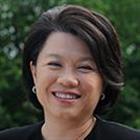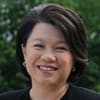commentary Commentary
Commentary: Challenging task ahead for 4G leaders to resolve succession question, as pace of transition weighs heavy
While COVID-19 has delayed succession, the 4G leaders should now consider how other candidates fare domestically and internationally before making a decision, says the Institute of Policy Studies’ Dr Gillian Koh.
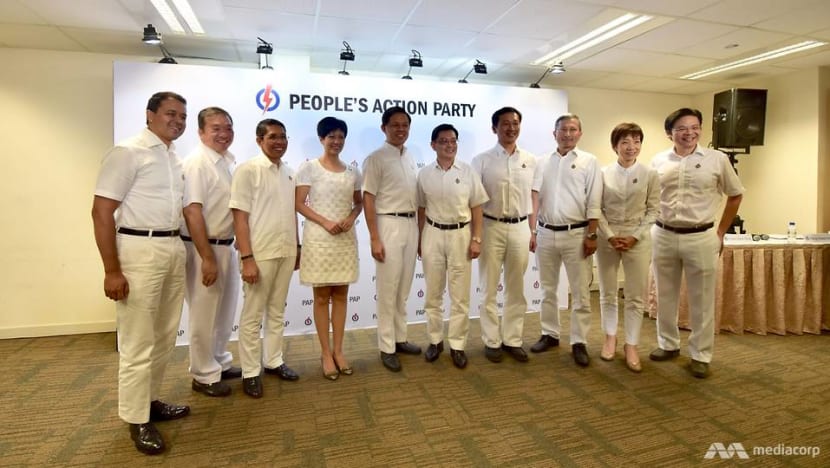
PAP members at a press conference at the party headquarters on Nov 23, 2018. (Photo: Hanidah Amin)
SINGAPORE: In a surprise announcement on Thursday (Apr 8), Deputy Prime Minister (DPM) Heng Swee Keat removed himself as successor to the current Prime Minister (PM) Lee Hsien Loong.
By stating he would no longer be head of the fourth-generation (4G) team of leaders in Government, Mr Heng has thrown the question of who will succeed PM Lee wide open yet again.
Mr Heng, a career civil servant until he contested in the 2011 General Election (GE), had been chosen as the ruling People’s Action Party’s (PAP) First Assistant Secretary-General in November 2018.
In April 2019, he was appointed Singapore’s sole DPM, signifying that there had been a consensus among the 4G team that Mr Heng should lead them and the country.
READ: IN FOCUS: The implications of a delayed transition to Singapore's next generation of leaders
With these developments, Mr Heng, was in all senses, the PM-designate. He was even handed the task of Acting PM in the absence of PM Lee.
When he brought his East Coast Group Representation Constituency (GRC) to a slim victory after an 11th hour switch from his stronghold in Tampines GRC in GE2020, some were generous to say that he successfully held off a rout by the Workers’ Party.
A second camp argued he had been wounded by his performance and wondered if the party might review his suitability as the nation’s next leader.
They might think their instinct was right when Mr Heng said he was stepping aside for a new leader but he has also debunked this perceived link: “The results in the GE2020 performance, in particular, in East Coast GRC, is not the reason why I decided to step aside,” he said at the media conference on Thursday.
WHAT HAPPENS NOW?
In response to DPM Heng’s announcement, the 4G leaders said in a statement on Thursday “this unexpected turn of events is a setback for our succession planning”.
Given that PM Lee also said he would be announcing a Cabinet reshuffle in two weeks’ time, the question arises: Why was it not possible to pair the announcements to give the assurance to citizens that there would be, nonetheless, forward momentum in the process of leadership renewal?
Since PM Lee said there would be consequential shifts, would those whose political stocks rise – a second DPM, a new Minister for Finance or even a new Defence Minister, for instance, give indication of who the PAP might test as a replacement for Mr Heng. But whose choice would that be?
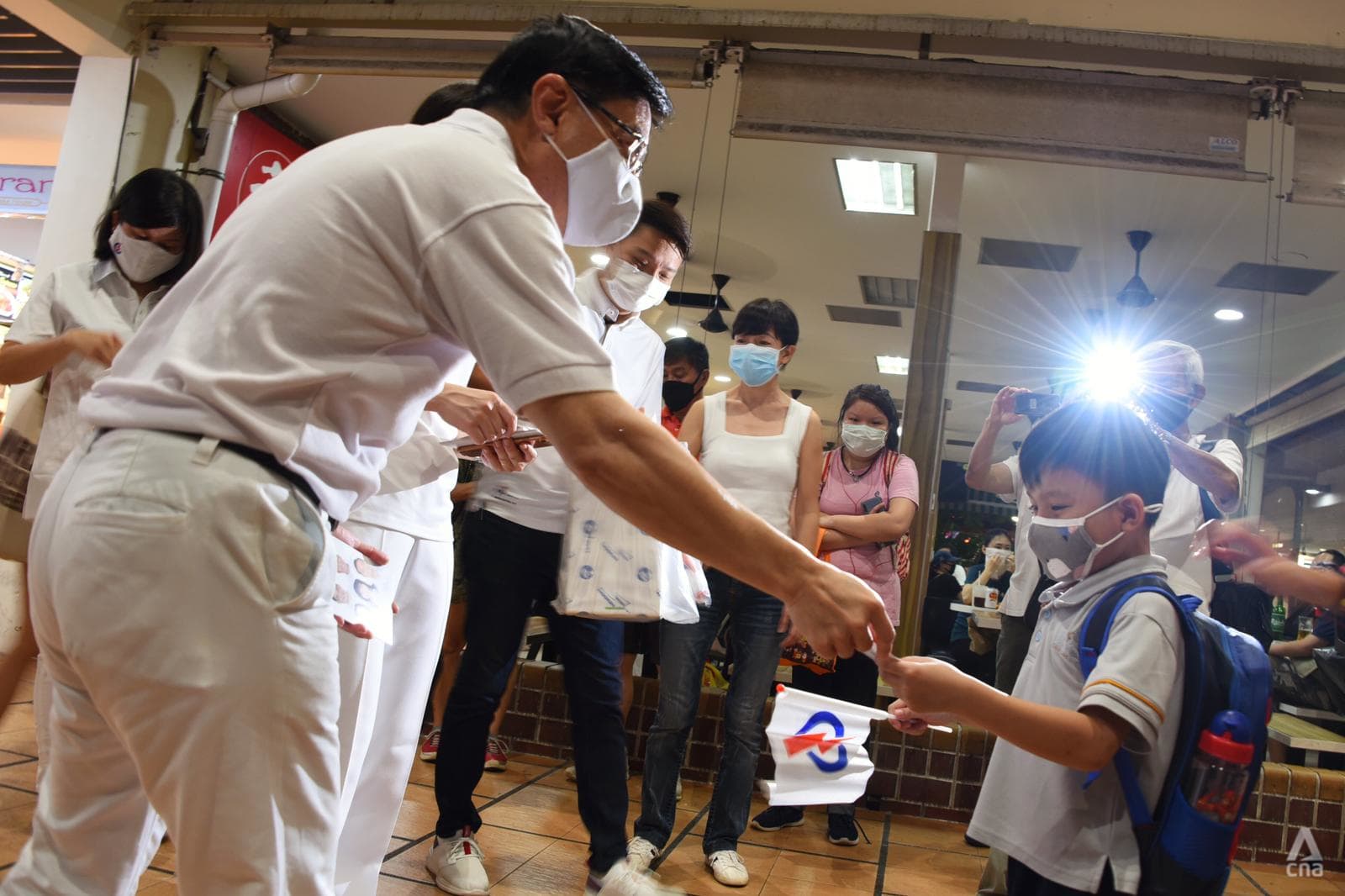
While the two-week interregnum may cause the rumour mills to go into overdrive, can the matter of who the 4G leaders wish to select be settled quite so quickly? Should it?
THE QUICK WELL-PLACED OPTION
Having said that, if current Minister for Trade and Industry Chan Chun Sing, who is also Second Assistant Secretary-General of the PAP, were to be placed in the powerful Finance Minister role, it could be taken as a forgone conclusion that Mr Chan is next in line to succeed PM Lee.
This would be the fastest way to resolve the succession question.
READ: Commentary: Singapore’s steady seven-month plan to get the economy back on track
Like Mr Heng, Mr Chan entered Government with the 2011 GE. He has held a few full ministerial portfolios but most unusually, has had a tour of duty outside of mainstream government as the country’s labour chief - Secretary-General at the National Trades Union Congress.
He has also been developing his international exposure through a collaborative project between the Government and that of Chongqing province in the People’s Republic of China.
His previous incarnation as a Major-General and Chief of Army in the Singapore Armed Forces will have afforded him defence networks in the region and also in the United States where he was the first foreign graduate to be conferred the Distinguished Master Strategist Award by the prestigious Army Command and General Staff College.
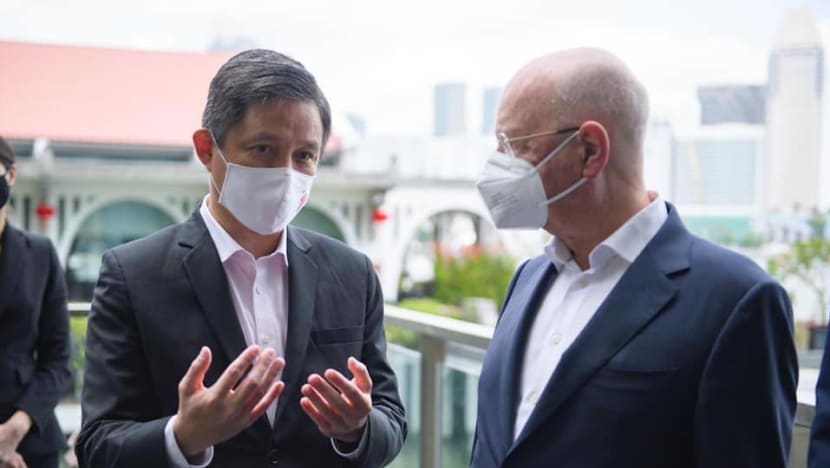
In his current portfolio as Industry and Trade Minister during the pandemic, Minister Chan has worked overtime to secure multilateral trade arrangements and ensure that international trade lines remain open.
A FRESH 4G CONSENSUS WILL TAKE TIME
However, at Thursday’s press conference on Mr Heng’s announcement, Mr Chan and Transport Minister Ong Ye Kung - another 4G member touted to be a contender for the premiership - said that the 4G team will need time to consider afresh and “holistically” who might be most suited to be the “captain of the team” using Ong’s preferred metaphor.
In other words, the most obvious choice may not be the answer.
What is at stake here?
The deleterious public health and economic effects of COVID-19, Mr Heng, explained, would require several years to recede.
PM Lee has also previously acknowledged this while assuring Singaporeans that he will see Singapore through the current crisis and is “determined to hand over Singapore, intact and in good working order, to the next team”.
If he only took over as premier then, Mr Heng would already be in his mid-60s.
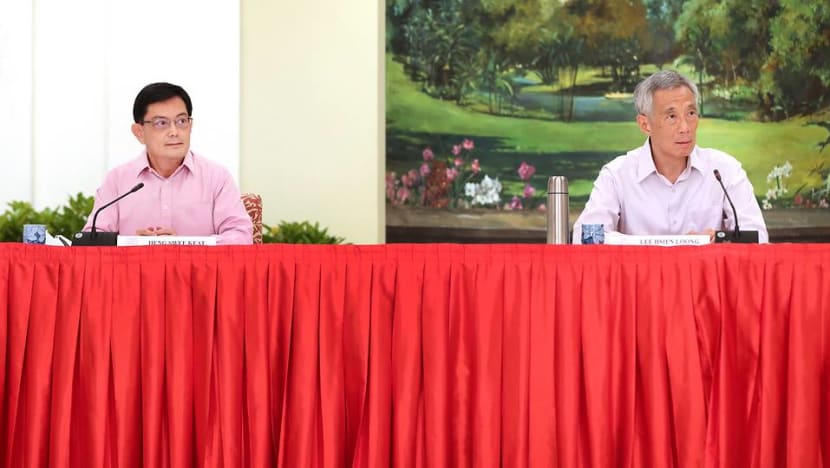
Sixty-five, we know, is the age when Singapore’s first PM Lee Kuan Yew had wanted to stand down and also two years older than when its second PM, Goh Chok Tong, transferred premiership to the current PM.
This would not have given Mr Heng a long enough runway to govern before the handover to the next leader is expected. This cycle of leadership succession would have started again all too soon.
INTERNATIONAL EXPOSURE OR DOMESTIC APPEAL
Precious time has been lost to the pandemic since the PM-in-waiting was also limited in his ability to travel overseas to strengthen his standing in the international community.
From the disruptions that emanate from US-China relations and the domestic political instability within some of our Southeast Asian neighbours, the uncertainty about how ASEAN can continue to provide ballast for peace, stability and security in the region, which Singapore relies on, is something PM Lee’s successor must be prepared to address.
READ: 'I was an accidental ambassador': Chan Heng Chee on being a female icon, the sacrifices she made and Singapore’s changing politics
This person must have a certain level of exposure and experience in operating on that plane.
In that regard, the two former Principal Private Secretaries to the current PM, Mr Ong and Education Minister Lawrence Wong, who are on the other hand 51 and 48 years old respectively, may also have some help to draw upon.
They can ride on the networks they have built from that role as well as the tutelage of the current PM - much like Mr Heng could, given that he played the same role to Singapore’s first PM.
The advantage might go to Mr Wong, who has built a high and favourable public profile as co-chair of the Multi-Ministry Taskforce on COVID-19 and clearly has the confidence of DPM Heng, serving as the latter’s Second Minister of Finance since August 2016.
READ: Commentary: How COVID-19 shaped this Singapore Cabinet line-up
If on the other hand, the 4G privileges a leader’s standing domestically and more importantly, his or her ability to motivate to inspire peers and citizens, the people-oriented Minister for National Development Desmond Lee at 44 years of age may be given more time to prove himself.
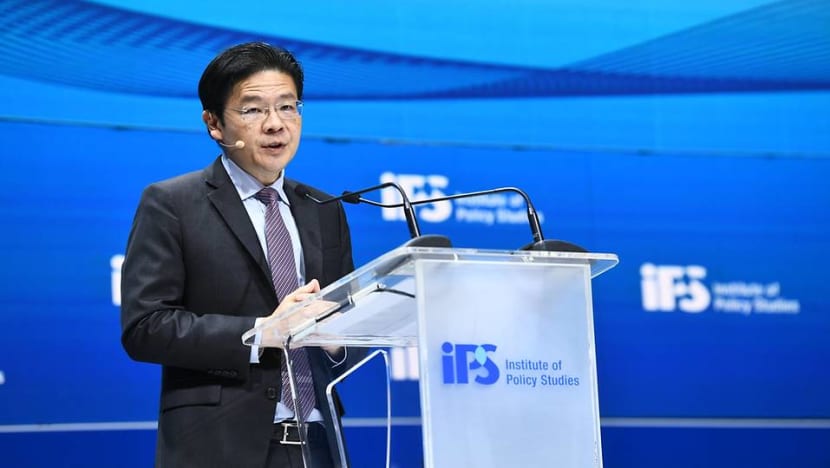
Ironically, this process of readying these individuals and testing the dynamics among the 4G leaders without Mr Heng in the picture will indeed take time. The next PAP Conference and GE may even be needed as barometers of support among cadres and citizens.
READ: Commentary: How the Workers’ Party won big this General Election
With PM Lee to provide the firm and steady leadership through the severe and immediate COVID-19 challenge, the best way forward is to take a step back to watch how these candidates continue to interact with Singaporeans, their international counterparts and each other before a new successor is announced.
Dr Gillian Koh is Deputy Director (Research), Institute of Policy Studies, Lee Kuan Yew School of Public Policy, National University of Singapore.








